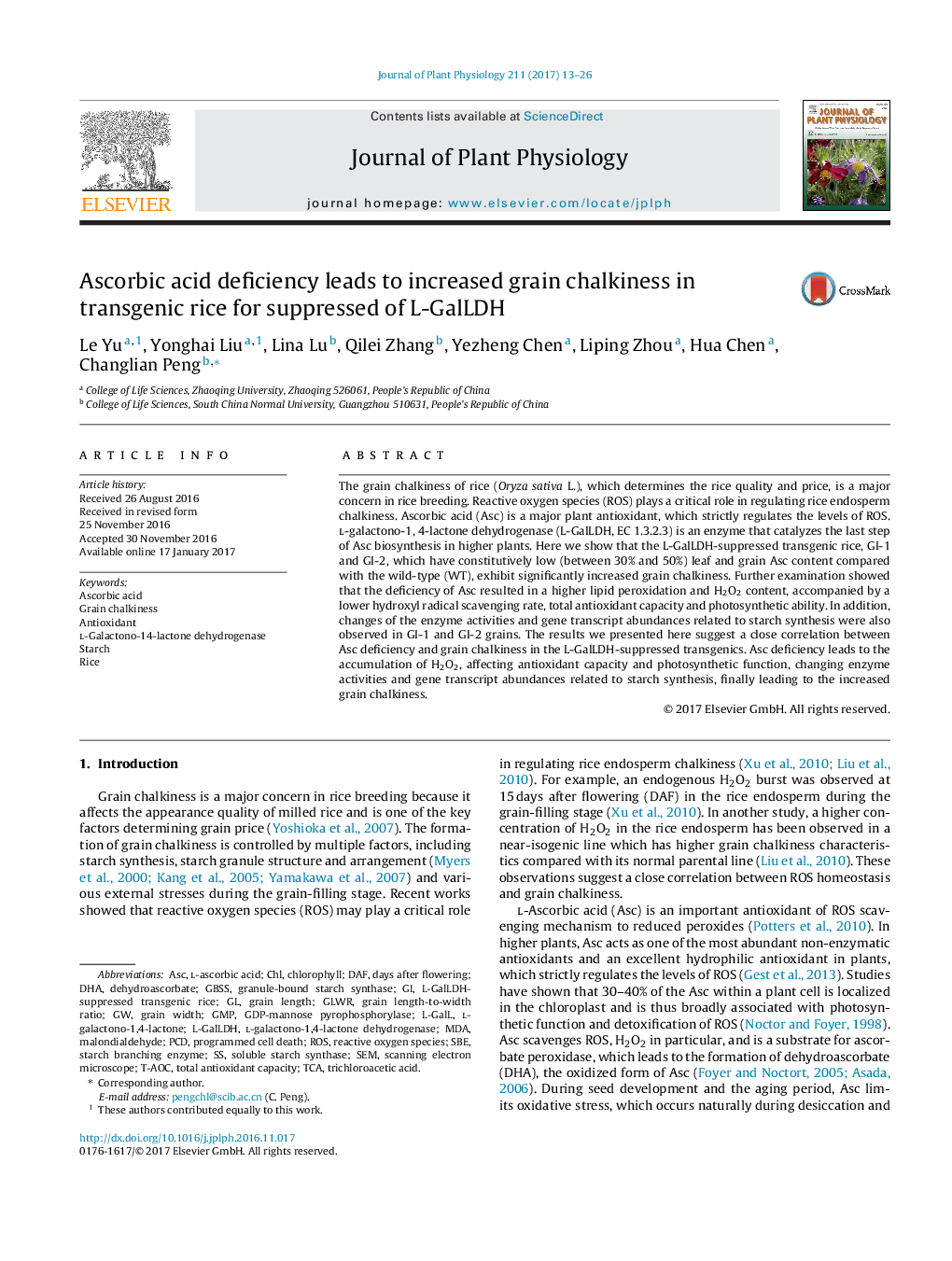| کد مقاله | کد نشریه | سال انتشار | مقاله انگلیسی | نسخه تمام متن |
|---|---|---|---|---|
| 5518057 | 1543867 | 2017 | 14 صفحه PDF | دانلود رایگان |

The grain chalkiness of rice (Oryza sativa L.), which determines the rice quality and price, is a major concern in rice breeding. Reactive oxygen species (ROS) plays a critical role in regulating rice endosperm chalkiness. Ascorbic acid (Asc) is a major plant antioxidant, which strictly regulates the levels of ROS. l-galactono-1, 4-lactone dehydrogenase (L-GalLDH, EC 1.3.2.3) is an enzyme that catalyzes the last step of Asc biosynthesis in higher plants. Here we show that the L-GalLDH-suppressed transgenic rice, GI-1 and GI-2, which have constitutively low (between 30% and 50%) leaf and grain Asc content compared with the wild-type (WT), exhibit significantly increased grain chalkiness. Further examination showed that the deficiency of Asc resulted in a higher lipid peroxidation and H2O2 content, accompanied by a lower hydroxyl radical scavenging rate, total antioxidant capacity and photosynthetic ability. In addition, changes of the enzyme activities and gene transcript abundances related to starch synthesis were also observed in GI-1 and GI-2 grains. The results we presented here suggest a close correlation between Asc deficiency and grain chalkiness in the L-GalLDH-suppressed transgenics. Asc deficiency leads to the accumulation of H2O2, affecting antioxidant capacity and photosynthetic function, changing enzyme activities and gene transcript abundances related to starch synthesis, finally leading to the increased grain chalkiness.
Journal: Journal of Plant Physiology - Volume 211, April 2017, Pages 13-26